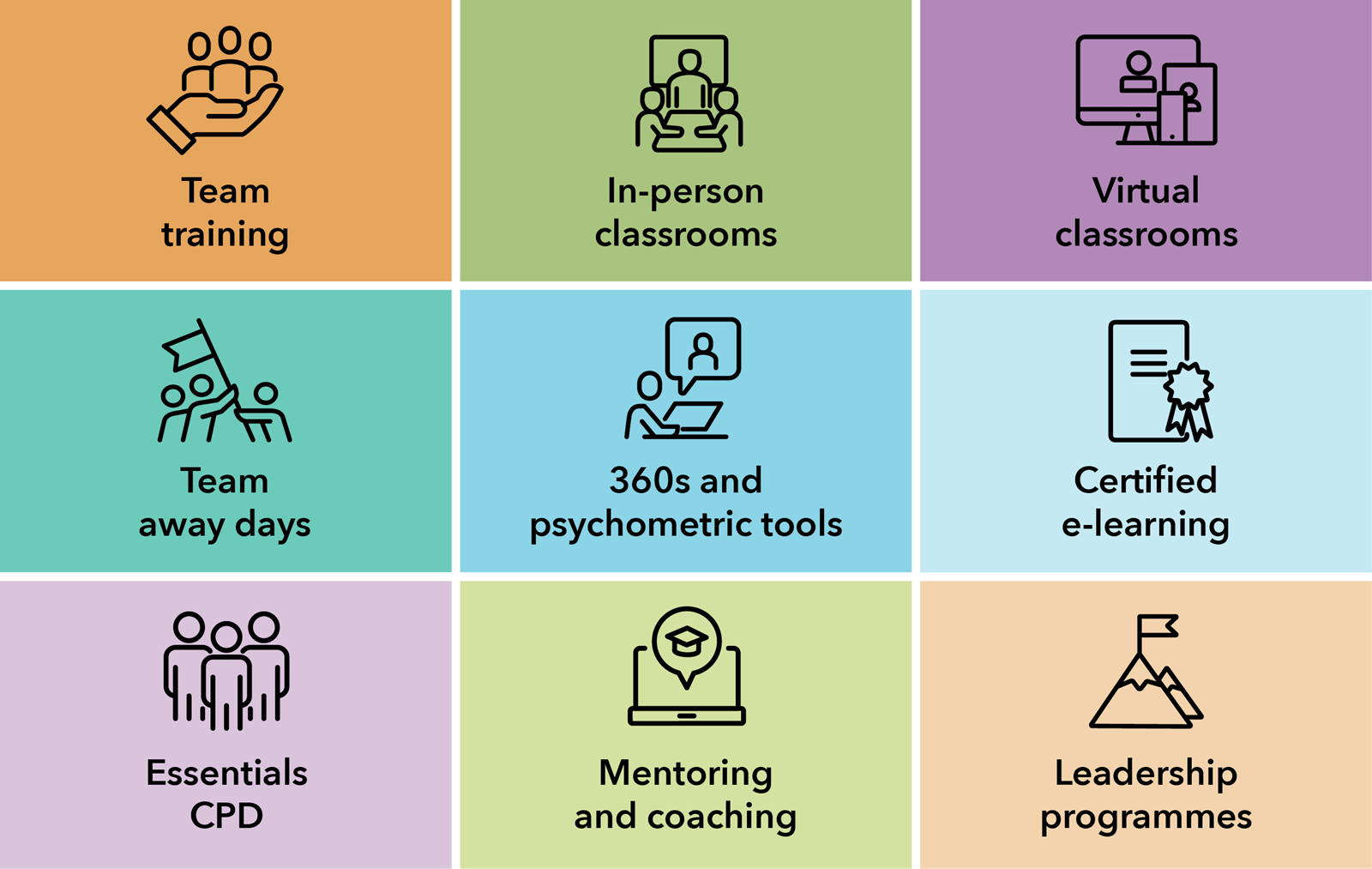Mind the gap
It sounds obvious, but the first thing that you need to do is identify the outcome that you want to get – what is the change that needs to happen at organisational, team or individual level. This might be due to, for example, new regulations, technology change, client offering or change in role. This isn’t always as easy as it sounds but the questions to explore are:
- Where are you now?
- Where do you need to be?
- What is the gap between the two?
An example might be a team shifting from a predominantly compliance focus towards a more consulting and advisory offering. What will success look like for the team? What do they need to know, how will they to deliver value to clients and how do they feel? Another common shift is around technology – embracing new ways of doing things and the efficiencies technology can bring.
Once you have a clear understanding of where you are now and where you need to be, you can then start to organise the development needs into three buckets:
- Knowledge
- Skills
- Mindset
Buckets of development
Knowledge is, in some ways, the most straightforward. What is the information that you need to know to make the change? It could be legislative, regulatory, available technology or other data. However, given the almost infinite quality of information coming at us, you need to prioritise what it is that you need to know, and identify what information already exists within your organisation.
What are the skills that you need to do things that are new or different? In the example above, this might be having more open conversations with clients, problem solving and managing priorities. It may be training on how to positively persuade clients and colleagues in a fast-changing world or coaching skills for team leaders. For yourself, it might be developing leadership skills that motivate and inspire teams.
Developing mindset might not be something that you’ve thought about but will make or break any change initiative. It could include normalising concerns about the change, spotting and shifting unhelpful assumptions or beliefs and identifying the team or leader that you want to be rather what you need to do.
Where do you start?
Once you’ve identified the gap and worked out what kind of development/s are needed, what do you do next?
Knowledge
Where can you go to get information that you trust and has credibility, especially with the advent of AI? I’m assuming that you’ve already signed up for regular Essential CPD updates from the ICAEW and other relevant leading professional sources. We all have our individual preferences in how we acquire knowledge, be it journals, webinars, virtual classrooms, team training, podcasts or blogs.
Skills
You can’t develop a skill by reading about it! The only way to develop a skill is by doing it in practice – this can be on the job, working with a skilled mentor or coach, or through a development programme where you can experiment in a safe environment. Hybrid working has provided us with many benefits; however, a big downside is the reduced opportunity to watch others role model client skills that get passed down so you may need to think about filling any skills gap caused by the shifting work patterns during Covid through clearly defined development programmes.
Mindset
The most effective way to help develop an enabling mindset is through coaching style conversations. This could be with a sponsor, mentor, peer group or, obviously, a coach but the key is that they have the requisite skills. Generally, for people to open up, you need to create a safe space, showing genuine interest through open questions and listening without judgement. Creating a space where a team can openly discuss their thoughts and concerns can also help shift mindset – if it is held effectively so it doesn’t just become a whinge-fest!

The ICAEW Academy Team is well placed to support your personal, team or organisational development, from helping you identify the gap, providing knowledge, running open or bespoke development programmes, and providing 1 to 1, group or team coaching.
Rakesh Shaunak, CEO, MHA MacIntyre Hudson worked with the ICAEW to design and deliver a programme aimed at the future leaders of their firm. He shared that
The biggest benefit has been the mindset change. Individuals now realise they need to be working on the business rather than in the business.
The team also collaborated with Anderson, Anderson and Brown to offer a customised version of the Developing Leadership in Practice (DLiP) programme for a select group of AAB’s senior managers.
Each participant came away feeling confident they knew how to lead the business, which was one of our main objectives and made the programme a huge success.
For more information
Reach out to the ICAEW Academy Team if you would like to learn more.
